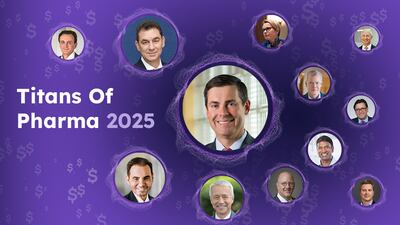From potential use as gene therapy delivery vehicles to anti-inflammatory therapies and cancer drugs, there has been excitement around exosomes since these stem cell components were first observed in the mid-20th century and later found to be correlated with disease states. However, they have yet to prove their value in the clinic.
Key Takeaways:
-
Exo Biologics hopes to provide the proof-of-concept to validate exosome technology
-
They are differentiated by use of umbilical cord mesenchymal stem cell-derived exosomes
-
Their lead candidate, EXOB-001, is currently in a European clinical trial for bronchopulmonary dysplasia in preterm newborns
Hugues Wallemacq, CEO of Belgian biotech Exo Biologics, hopes his company can help provide the clinical proof-of-concept to validate the technology and commercialize it.
Exosomes Explained
Exosomes are nano-sized extracellular vesicles (EVs) secreted by stem cells. They act as cell-to-cell messengers and contain a variety of biomolecules, from proteins to lipids and nucleic acids. As they are transferred between cells, they influence the behavior and function of recipient cells.

Exosomes are being investigated for a range of applications and indications, but their natural strengths lie in their immunomodulating and regenerating properties. Tailoring the molecular cargo of exosomes can also result in disease-specific biomarkers.
Exo’s Focus
Exo Biologics, which was founded in Liege, Belgium, in 2019, focuses on rare diseases with high unmet medical needs, specifically those with an inflammatory component. The company has an innovative drug loading and delivery platform that the CEO said maximizes the potential of exosomes, enabling these nanoparticles to be loaded with a range of therapeutic molecules and drugs.
Exo derives its exosomes from umbilical cord mesenchymal stem cells (MSCs). As umbilical cord stem cells are, “really young, by definition, they have strong proliferative potential,” Wallemacq said, a veterinarian by training who spent time at GSK as director of clinical immuno-chemistry assays and as head of R&D at a food production safety company in Liege.
Moreover, preclinical data suggest this type of exosome has stronger immunomodulatory potential than exosomes derived from other sources.
First European Exosome Study
Exo has achieved a first in the field, conducting the first European trial of an exosome-based therapy. Specifically, it is studying its lead asset, EXOB-001, in 40 preterm newborns with bronchopulmonary dysplasia (BPD). BPD is the most common cause of preterm death and there are no approved treatments. The disease is managed with oxygen administration, vitamin C or corticosteroids, for severe cases.
EXOB-001 is administered intratracheally in the preterm newborns.
Reflecting on the company’s success in receiving the first European Medicines Agency approval for its exosome-based clinical trial, Wallemacq said it was partly a result of demonstrating that, “our platform is scalable and highly reproducible and safe.”
Pipeline In Early Stages
The rest of Exo’s pipeline is in earlier stages, as is the trend across the exosome industry. There are assets in preclinical testing for dermatology and inflammatory bowel diseases as well as preclinical research examining exosome-based drug loading and delivery for oncology and neurology targets.
“We are considering pursuing our second lead indication in a dermatologic indication, because it’s faster and easier to recruit patients and to demonstrate, in parallel to the BPD study, the effect of exosomes, and particularly the exosome’s regenerative potential,” he told In Vivo.
“If we prove successful with these two indications, it can open up a lot more indications and partnerships, because often more than several indications can be addressed by the same exosome treatment,” Wallemacq said.
Employing the same type of exosome-based therapy for multiple conditions is one reason the modality could prove relatively affordable, he continued, listing other reasons exosomes may be priced accessibly as well.
“The cost of production is lower than cell therapy, exosomes can be stored easily, and with our manufacturing platform, we can produce on a large scale, making it even more cost effective,” he said.
Recent Launch Of Exosome CDMO
The company’s manufacturing approach differentiates it from its competitors and has created additional revenue potential.
“Since 2019, we’ve been focused on developing a platform to produce exosomes in a scalable way,” said Wallemacq. Discussions with European regulators regarding the manufacturing process and working through the approval pathways for exosome-based therapy took years, and “we were the first approved,” he emphasized.
Those learnings resulted in a manufacturing process that Exo is now offering others, in the form of ExoXpert, a contract manufacturing subsidiary the company launched in January 2024.
“We realized that as a strategy for our own success, we need to accelerate the growth of the broader therapeutic field,” said Wallemacq. “So, we decided to both continue our own clinical development and to use our platform to accelerate development of the field and create partnerships and increase our revenues.”
The CEO is eager to help other exosome companies on their own journeys, but ExoXpert’s offerings are strategic. The CDMO will only produce exosomes for other companies, “for limited indications, which is a way to limit the competition.”
There are other CDMOs that manufacture exosomes, including Lonza Group AG and Thermo Fisher Scientific, but “our expertise comes from our clinical program, meaning we have overcome regulatory barriers and validated our platform.”
In The Exosome World, Your Win Is Our Win
In the spirit of wanting to see broader growth of exosome R&D, Wallemacq celebrates the successes of its competitors. For example, Austin, Texas-based Direct Biologics, LLC – one of the few companies with clinical-stage exosome-based therapies - is currently conducting a Phase III study of its sole asset, ExoFlo, for COVID-19-associated Acute Respiratory Distress Syndrome (ARDS), after Phase II results showed reductions in mortality in patients with COVID-19 ARDS.
“Demonstrating proof-of-concept was positive not only for patients and Direct Biologics but for the entire field,” said Wallemacq.
Other companies pushing towards clinical proof-of-concept data for exosome-based treatments include Oxford, UK-based Evox Therapeutics Limited, which uses exosomes as delivery vectors for gene therapy. Evox has also signed deals with Eli Lilly and Company to engineer exosomes to treat neurological disorders, and has an agreement with Takeda Pharmaceutical Co. Ltd., worth up to $882m focusing on use of exosomes for protein replacement and delivery of mRNA therapies.
And Miami-based Aegle Therapeutics Corp. is testing AGLE-102, an exosome therapy derived from human bone marrow mesenchymal stem cells, in Phase I/II for dermatologic indications and burns.
“There is space for a lot of companies if the field becomes a reality, based on the generation of multiple sets of clinical evidence. There will be a lot of indications to tackle with this technology,” Wallemacq said.








